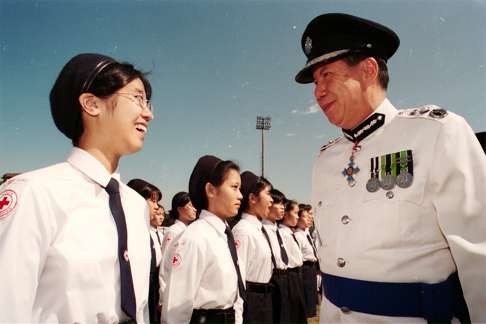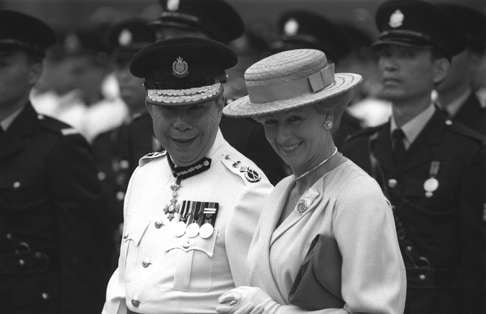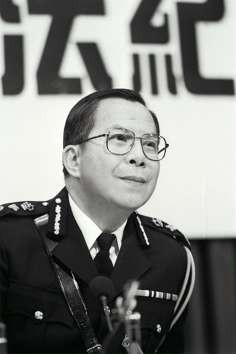
Hong Kong’s first Chinese police commissioner Li Kwan-ha dies at age 79
Li joined Royal Hong Kong Police in 1957, retiring in 1994

Former police commissioner Li Kwan-ha, who in 1989 became the first Chinese person to head the force, died in Queen Mary Hospital on Monday night. He was 79.
Li’s daughter called for an ambulance at about 8.15pm after he collapsed in the bathroom at his home in Baguio Villa on Victoria Road. He was taken to the hospital nearby but was declared dead at 8.51pm.
Li is survived by two daughters. His wife died in November 2007.
Li joined the Royal Hong Kong Police in 1957. He was promoted to deputy police commissioner in 1985, the first local Chinese officer in that role.
He then succeeded Raymon Anning in December 1989 and become the first Chinese police commissioner in the city under British rule
After he retired in 1994, Li joined tycoon Li Ka-Shing’s Hutchison Whampoa and Cheung Kong as a consultant.
He was last seen publicly at the inauguration ceremony of the Kowloon Chamber of Commerce last month, when he was appointed as the chamber’s honorary consultant for two years.
Li appeared to be in good spirits but needed assistance to get on stage to receive his appointment certificate.
Chief Executive Leung Chun-ying expressed sorrow over Li’s death and conveyed his deepest condolences to the family.
Incumbent police chief Stephen Lo Wai-chung said he was “deeply saddened” and conveyed the force’s deepest condolences to the family.
He said: “Mr Li was the first Chinese commissioner of police and was an outstanding leader. We express profound sadness at his death.”
Dick Lee Ming-kwai, who was police commissioner from 2003 to 2007, saw Li in hospital on Monday night. As a former subordinate, Lee expressed gratefulness for Li’s contribution to the city and the force, especially in the “localisation” of the department.
He said Li was very professional and enthusiastic, and had been a “rigorous” leader.
Lee added that the deceased had been in good health until recent years, when little problems emerged. He was deeply shocked by Li’s death.

